For over 2000 years, China was ruled by an emperor. Chinese chose their emperors strategically, and this mostly happened after a vote of no confidence was passed or when the emperor dies. When the current emperor passed on, typically his oldest son would be the heir of the throne. This, however, wasn’t always the case. Sometimes, political conflicts would arise over who should become emperor, and there are times when this would lead to war with any rivals.
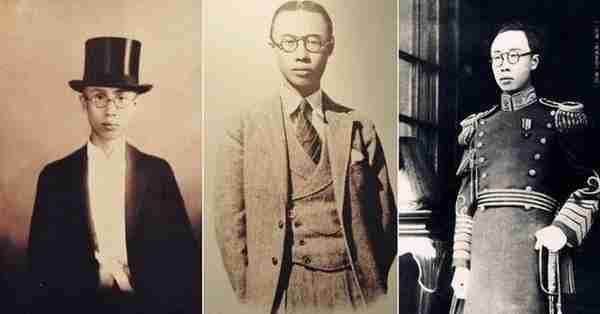
When it comes to the title, the Chinese word for ‘Emperor’ is ‘Huangdi’ which was used across the country. While that was the main title, the Chinese used several words to refer to their emperor, some of which were ‘His Holy Highness’, and ‘the Lord of 10,000 years. The words of the Chinese emperor were seen as final and were considered sacred. Also, the people of China believed that the emperor was under the mandate of heaven. That means if they didn’t do a good job, the title was stripped away from them.
That said, the first Chinese emperor was Zheng, who proclaimed himself Qin Shi Hang, which meant the first sovereign emperor of the land. He ruled the Qin dynasty from 221 to 206 BC. Now that we understand the regime background in China and have acquainted ourselves with the first emperor of China, who is the last? Read on to find out!
Who is the last emperor of China?
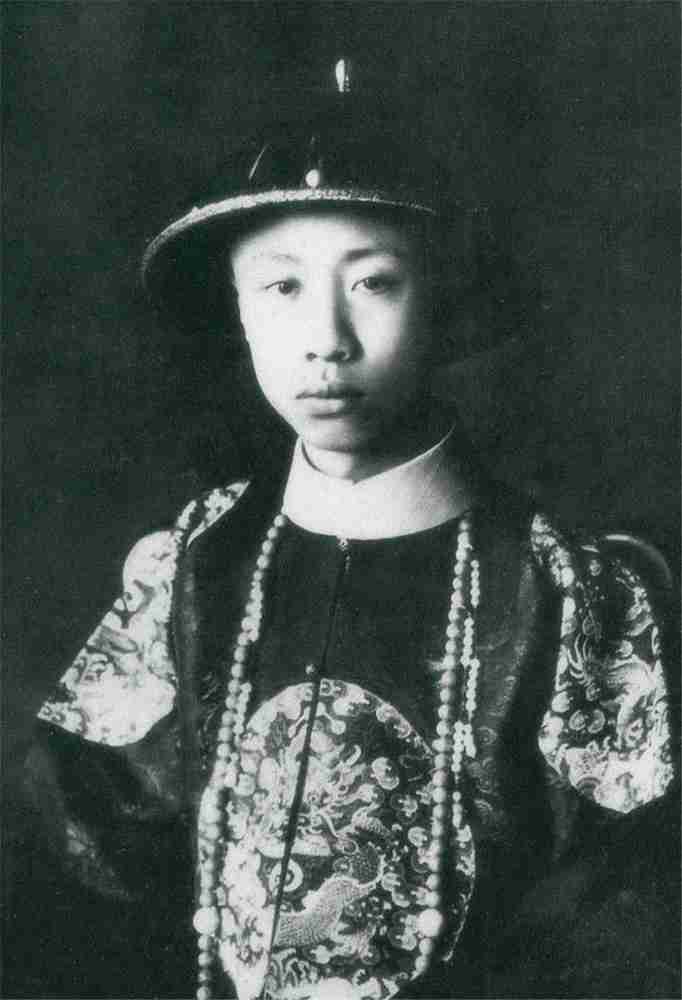
The last emperor of the Qing Dynasty, who is also the last emperor of China is known as Aisin-Gioro Puyi. He lived through the fall of his empire, World War II, and the 2nd Sino-Japanese War, the founding of the Peoples’s Republic of China, and the Chinese Civil War.
He was born on the 7th of February 1906, to Prince Chun of the Asian-Gioro clan of the Manchu royal family, one of the most influential families in China. He had tight family ties with the de facto ruler of China, who was Empress Dowager Cixi at the time. When the Guangxu Emperor, his uncle, died of arsenic poisoning in 1908, he was selected by the empress as the new emperor. At the time, he was a very little boy; but because the empress died the next day, her word was final.
what was the name of the last emperor of China?
The last emperor of China, known as Puyi of the Aisin Gioro clan, had various titles and names. His birth name was Aisin-Gioro Puyi, with the courtesy name of Wuge, the style name of Yaozhi, and the sobriquet of Haoran. In English, he was commonly referred to as “Henry.” In Tibetan, he was honored as the “Emperor Manjushri.” His reign title was “Xuantong,” and he is often referred to as the “Xuantong Emperor” by later generations. After the Xinhai Revolution, Puyi was forced to abdicate by Yuan Shikai, leading to him being also known as the “Abdicated Emperor” or the “Deposed Emperor” of the Qing dynasty. In 1917, with the support and assistance of Zhang Xun and others, Puyi briefly staged a restoration but ultimately failed. In 1934, with the support and assistance of Japan, Puyi ascended the throne as the Emperor of Manchukuo, adopting the reign title “Kangde,” and was thus also known as the “Emperor Kangde.”
When was the last emperor of China?
In 1912, specifically on February 12, Puyi was forced to abdicate. This happened after Sun Yatsen’s republican revolution. Immediately after, they established a provisional government to replace his regime. This governmental shift significantly ended 2,000 years of imperial rule and 267 years of Manchu rule in China.
why was puyi chosen as emperor?
why did cixi choose puyi?
Reason 1: The Emperor was young, only three years old (one year younger than Emperor Guangxu when he ascended the throne). For Empress Dowager Cixi, who was obsessed with power, it was easier to control a young Emperor like Puyi. Just as she did when Emperor Tongzhi and Emperor Guangxu ascended the throne, she could also request to exercise regency behind the scenes and consolidate power in her own hands. According to Puyi himself, as mentioned in his autobiography “From Emperor to Citizen,” although Empress Dowager Cixi was seriously ill and physically weak at the time, she firmly believed that she would soon recover and be able to govern again.
Reason 2: Empress Dowager Cixi was concerned that after her death, the new Emperor would seek to rehabilitate Emperor Guangxu. Due to the young Emperor’s age, he would inevitably be susceptible to manipulation by the Royalist Party (a faction in support of Emperor Guangxu), which could turn the blame towards her. Empress Dowager Cixi was well aware of the persecution she subjected Emperor Guangxu to (evidence suggests Emperor Guangxu died of arsenic poisoning). This would not only implicate her own relatives but, more importantly, tarnish her own reputation. In order to secure her reputation, it was necessary to establish Puyi as the Emperor. Puyi’s mother, Consort Jin, was the daughter of Ronglu, the person Empress Dowager Cixi trusted the most. If Puyi sought to rehabilitate Emperor Guangxu, it would undoubtedly implicate Ronglu, Puyi’s grandfather, and Puyi’s biological mother. This is the second main reason for establishing Puyi as the Emperor.
Puyi’s mother, Consort Jin, was adopted by Empress Dowager Cixi and was the biological daughter of Ronglu, a trusted confidant of Empress Dowager Cixi. Empress Dowager Cixi arranged for Consort Jin to marry Zaitian (Puyi’s father). Puyi’s maternal grandfather, Ronglu, was a trusted senior minister in Empress Dowager Cixi’s later years, similar to Heshen’s role during the reign of Emperor Qianlong. Ronglu’s rise in rank was rapid, despite lacking scholarly achievements, not being a top scholar, and having no military prowess. He ascended in rank quickly, becoming a commander-in-chief, Minister of War, Minister of Foreign Affairs, and Grand Councilor. During the Wuxu Coup, Yuan Shikai and Ronglu reported to Empress Dowager Cixi and betrayed the Reformists.
Empress Dowager Cixi designated Puyi, her adopted daughter’s son, as the designated heir to the throne. This indicates that Empress Dowager Cixi chose individuals with connections to the Aisin Gioro clan to become the Emperor.
It is worth mentioning that when the decision was made for Puyi to inherit the throne, Emperor Guangxu had not yet passed away. Emperor Guangxu was very satisfied upon learning of this decision because Puyi was his nephew, and Puyi’s father was his own younger brother.
Reason 3: At that time, the Qing Dynasty was in a precarious situation, facing internal and external challenges. Revolutionary parties within the country were growing stronger day by day. Empress Dowager Cixi urgently needed someone who could handle foreign powers and balance domestic conflicts with the help of foreign influences. She quickly turned her attention to Zaitian, Puyi’s father.
In 1901, at the age of eighteen, Zaifeng, as the Prince Chun of the Qing dynasty, was sent as an envoy to Germany. He gained the favor of Empress Dowager Cixi due to his dignified behavior and defense of the nation’s interests in the case of the assassination of Minister Clemenceau during the Boxer Rebellion. Zaifeng was not only a member of the Manchu royal family but also one of the few individuals who could establish contact with foreigners. Additionally, he was knowledgeable about Western affairs. In the absence of loyal officials around Empress Dowager Cixi (such as Ronglu and Li Hongzhang, who had passed away), Zaifeng became her preferred choice. In other words, Empress Dowager Cixi was determined to promote Zaifeng’s position, with the exception of making him the emperor. By doing so, she could install Puyi as the emperor, without giving the ministers any reasons to oppose, thus demonstrating her cunning intentions.
how did puyi become emperor of china?
Puyi, also known as Henry Pu Yi, became the last Emperor of China through a complex series of events during the early 20th century. Here’s a brief overview of his rise to the throne:
Qing Dynasty: Puyi was born on February 7, 1906, into the Aisin Gioro clan, which was part of the ruling Qing Dynasty in China. At the age of 3, he was chosen as the new emperor after the death of his cousin, Emperor Guangxu.
Regency: As Puyi was too young to rule, a regency was established with Empress Dowager Longyu and his father, Zaifeng, serving as regents. However, the Qing Dynasty was facing numerous challenges, including political unrest, social upheaval, and the rise of nationalist movements.
Xinhai Revolution: In 1911, the Xinhai Revolution broke out, leading to the overthrow of the Qing Dynasty and the establishment of the Republic of China. Puyi was forced to abdicate the throne on February 12, 1912, effectively ending the imperial rule.
Manchukuo Puppet State: Despite the end of the Qing Dynasty, Puyi’s story did not end there. In 1931, the Japanese Empire, seeking to expand its influence in China, established the puppet state of Manchukuo in northeastern China. Puyi was installed as the symbolic emperor of this state, which lacked real sovereignty.
Japanese Influence: Puyi’s role as the emperor of Manchukuo was largely under Japanese control. The Japanese authorities used him as a figurehead to legitimize their occupation and exploit the region’s resources.
World War II and Soviet Captivity: During World War II, Manchukuo sided with the Axis Powers. However, following Japan’s defeat, Puyi was captured by Soviet forces in 1945 and held as a prisoner in the Soviet Union until 1950.
People’s Republic of China: After his release, Puyi returned to China and was imprisoned by the Chinese Communist Party. However, he was later pardoned and worked as a gardener in Beijing’s Botanical Gardens. He eventually became a member of the Chinese People’s Political Consultative Conference.
Puyi’s life and reign as the last Emperor of China were tumultuous, marked by political upheaval, foreign domination, and shifting allegiances. His story provides insights into the dramatic transformation of China during the early 20th century.
why puyi became the emperor three times?
First Reign: 1909-1912
On the fourteenth day of the first lunar month in the thirty-second year of Emperor Guangxu’s reign (1909), Pu Yi was born in the Chunwang Mansion. In the thirty-fourth year of Emperor Guangxu’s reign, both Emperor Guangxu and Empress Dowager Cixi fell seriously ill. As Emperor Guangxu had no son at that time to inherit the throne, Empress Dowager Cixi summoned the Grand Councilors to discuss the matter of establishing a crown prince. It was ultimately decided to proclaim three-year-old Pu Yi as the emperor and appoint his biological father, Zai Feng, as the regent. Half a month after the passing of Empress Dowager Cixi and Emperor Guangxu, Pu Yi ascended the throne. In the second year of his reign, the era name was changed to Xuantong. In the third year of Xuantong, which was 1911 in the Republican calendar, the Xinhai Revolution broke out. On February 12, 1912, Empress Dowager Longyu, acting on behalf of Pu Yi, issued the “Decree of Abdication,” marking the end of the Qing Dynasty and the more than two-thousand-year-old feudal imperial system in China.
Second Reign: July 1, 1917 – July 12, 1917 (Only 12 Days)
After Puyi abdicated, he continued to live in the Forbidden City, still leading the life of an emperor. His living expenses were provided by the Republic of China government, and the former imperial kitchen remained in operation. Therefore, his dining experience was no less luxurious than before. After his abdication at the age of 6, Puyi began studying and learning. In 1917, Zhang Xun, a former minister of the Qing Dynasty, led his troops to Beijing and launched a coup, proclaiming the restoration of the monarchy. Twelve-year-old Puyi once again ascended the throne, but this restoration was short-lived. Duan Qirui launched a campaign against Zhang Xun, who fled to the Dutch Embassy. The next day, Puyi announced his abdication, marking his second reign as emperor lasting only 12 days. During Puyi’s restoration, there was an incident where a republican airplane flew over the Forbidden City and dropped a small bomb, which landed in the Yannian Palace in the eastern Six Palaces of the Forbidden City, causing minor damage.
Third Reign: 1934-1945
In 1919, British envoy Reginald Johnston arrived in Beijing and became Puyi’s tutor, teaching him subjects such as geography, English, and world history, which Puyi had never been exposed to before. This broadened Puyi’s understanding of the world and deepened his desire to study abroad. However, due to his circumstances, he was unable to fulfill this wish. In 1922, Puyi entered into a marriage and simultaneously married two women, Empress Wanrong and Consort Wenxiu. In 1924, Puyi was forced to leave the Forbidden City and moved to the residence of Prince Chun, and later sought refuge in the Japanese Legation. Being sheltered by the Japanese Legation, the Japanese used this as a pretext to establish the puppet state of Manchukuo, building momentum for their later endeavors. In 1925, Puyi relocated to the Jingyuan and Zhangyuan gardens in Tianjin. During the seven years from 1925 to 1932, Puyi resided in Tianjin, experiencing the ups and downs of life and the indifference of various powers towards him. This made him think of Japan, which had once provided him shelter. Therefore, he agreed to all the conditions set by the Japanese and went to the northeast. In 1932, with the assistance of the Japanese, Puyi established a puppet regime in Manchuria called “Manchukuo,” with the reign title of “Datong,” marking Puyi’s third ascension to the throne.
when did puyi become emperor for the third time?
On March 9, 1932, the Japanese Kwantung Army appointed Puyi as the “regent” of “Manchukuo” in Changchun, with the reign title “Datong.” On March 1, 1934, “Manchukuo” was renamed the “Empire of Manchukuo,” with the new reign title “Kangde,” and Puyi formally “ascended the throne” as emperor. However, although he was titled as an emperor, in reality, all major decisions of “Manchukuo” required approval from the Kwantung Army.
why did puyi abdicate?
Emperor Puyi experienced three significant events leading to his abdications.
The first abdication occurred due to the outbreak of the Xinhai Revolution. Empress Dowager Longyu, under pressure from the anti-feudalism movement, was forced to issue the “Edict of Abdication” on behalf of Puyi.
The second abdication happened during Zhang Xun’s attempt to restore the monarchy through a military uprising. Puyi was placed on the throne briefly, but the rebellion was soon suppressed, and Puyi had to abdicate once again.
The third abdication took place at the end of World War II when the Allied Powers emerged victorious, and Japan surrendered. Puyi was compelled to abdicate for the third time.
who was the emperor before puyi?
Before Puyi, the emperor of China was his predecessor, Guangxu, also known as Emperor Guangxu of the Qing dynasty. Guangxu reigned from 1875 to 1908. He was the tenth emperor of the Qing dynasty and ruled from the age of four until his death. Guangxu’s reign is notable for the Hundred Days’ Reform, a period of rapid modernization and institutional reform in China, which was cut short by the conservative forces at court, resulting in his house arrest until his death. After Guangxu’s death, Puyi, as a child, was chosen to succeed him as the emperor.
how old was puyi when he became emperor?
In the winter of the 34th year of Guangxu’s reign (1908), Emperor Guangxu fell seriously ill, and Empress Dowager Cixi ordered that Puyi be raised within the palace. When the news reached the Prince Chun’s Mansion, chaos ensued. Puyi’s grandmother, Empress Dowager Longyu (Empress Dowager Cixi’s niece and the second wife of Emperor Tongzhi), fainted after hearing the edict brought by Zai Feng. The future emperor, Puyi, cried and resisted being taken away by the palace eunuchs. Puyi’s wet nurse, Wang Jiao, carried him into the palace. On November 14th, Emperor Guangxu passed away, and Empress Dowager Cixi declared Puyi as the successor, adopting him as the heir of Emperor Tongzhi (Puyi’s predecessor) and also inheriting the lineage of Emperor Guangxu, thus connecting two imperial lineages.
Empress Dowager Cixi became Empress Dowager Taihou (Grand Empress Dowager). On the same day, Empress Dowager Cixi passed away. Imperial Noble Consort Qi was posthumously honored as Qi Empress Dowager, Imperial Noble Consort Yu was honored as Yu Empress Dowager, Imperial Noble Consort Xun was honored as Xun Empress Dowager, and Noble Consort Jin was honored as Jin Noble Consort. Emperor Jing, Consort Jin’s husband, was honored as Jin Noble Consort. Emperor Jing’s testament was announced. Around the same time, a rebellion occurred in Anqing but was suppressed by the Qing army.
In November, the testament of the Empress Dowager Taihou was announced. The edict decreed offerings and sacrifices throughout the four seasons, and Prince Chun was referred to as “Prince Chun, our esteemed progenitor.” The legitimate Noble Consort, Empress Dowager Longyu, was referred to as “Empress Dowager Longyu, our esteemed progenitress.” On December 2nd, Puyi ascended the throne in the Hall of Supreme Harmony, with Empress Dowager Longyu and Zai Feng serving as regents. The following year, the reign title was changed to “Xuantong.” Prince Qing, Yikuang, retained his prince status with hereditary succession. Princes Zai Xun and Zai Tao were granted the title of Duke. A Forbidden City Guard was established, and Princes Zai Tao, Yulang, and Minister of War Tie Liang were appointed to oversee its training. Zhang Zhidong was appointed as the Minister in charge of supervising the construction of the Sichuan-Hankou Railway.
Puyi of the Aisin Gioro clan ascended the throne twice, first at the age of three and then at the age of twelve, with the reign title “Xuantong.” After the death of Emperor Guangxu, Puyi, only three years old, was proclaimed as the emperor by Empress Dowager Cixi. However, he abdicated a few years later. In 1917, at the age of twelve, Puyi ascended the throne again but was forced to abdicate after just 11 days.
Why was the last emperor of China overthrown?
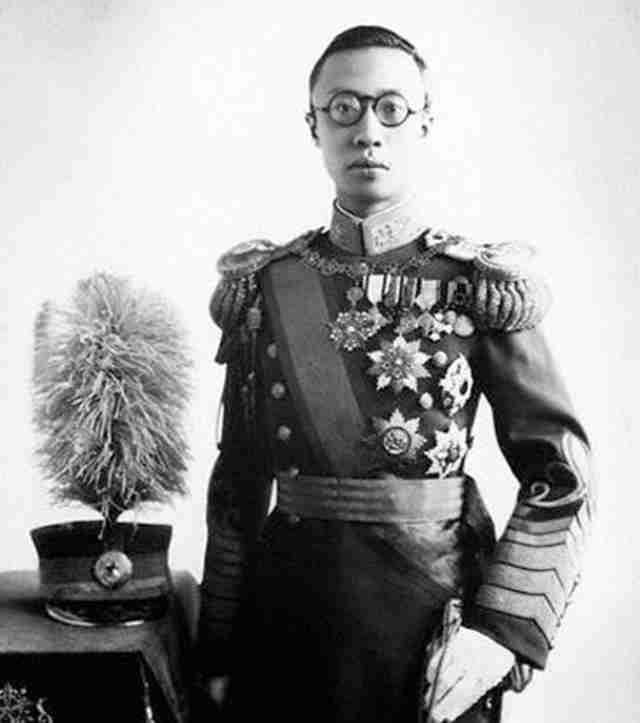
Unfortunately, emperor Puyi retired about three times during the period between 1912 and 1945. In 1912, the primary reason for his abdication was the outbreak of the Chinese Revolution of 1911. His government saw that the general situation was coupled with the temptation and coercion of Yuan Shikai and other leaders, so he felt threatened and chose to abdicate. During this time, he lost the power of the emperor but still retained the prestige of emperor. Based on this background, we can say that the first abdication in 1912 wasn’t necessarily a real abdication.
In 1917, Puyi abdicated again in the small court and did the same in 1945. During world war II, Japan invaded and occupied about 3 provinces in the eastern parts of China. There was a crazy uproar in the international community during that year because they thought that Japan disrupted the international order that was stabilized after World War I. Following multiple condemnation notices and questioning, Japan decided to support the puppet regime in the Northeast to ease the pressure of international public opinion. The best puppet for this was Puyi.
This further enabled Puyi to reestablish the Manchukuo regime and regain his title. Because he was under Japan’s mercy, when Japan was defeated in 1945, Puyi lost his power and had to announce his abdication again. The only difference is that this time around, it was a lot more embarrassing following the Chinese document (an abdication edict) that officially overthrew him.
What happened to the last emperor of China?
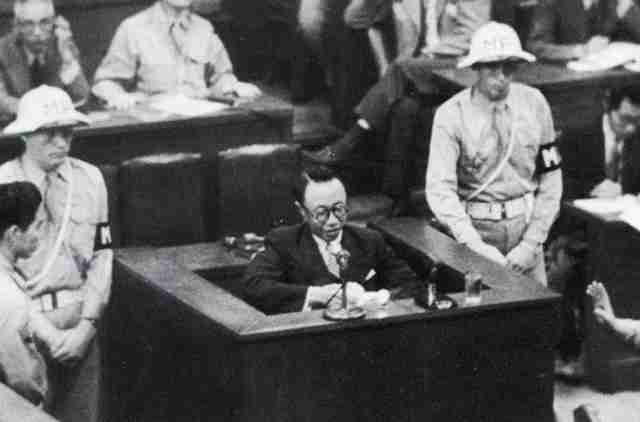
Towards the end of World War II, emperor Puyi was imprisoned by the Russians, and he was taken back to China in 1950 for thorough trials as a war criminal. The communists did not want to kill him, so they preferred to make him a communist through several years of reeducation. At this time, he had to learn more about revolution.
In 1959, he was pardoned, and he chose to start over his life in Beijing, China. He pursued research as a new career in the institute of literature and history, which was a popular sector under the Chinese People’s Consultative Conference. During this time, he wrote his autobiography that was published in 1965.
Afterward, he became a revolutionary hero and was treated as such and was under protective custody until the time of his death.
puyi wife
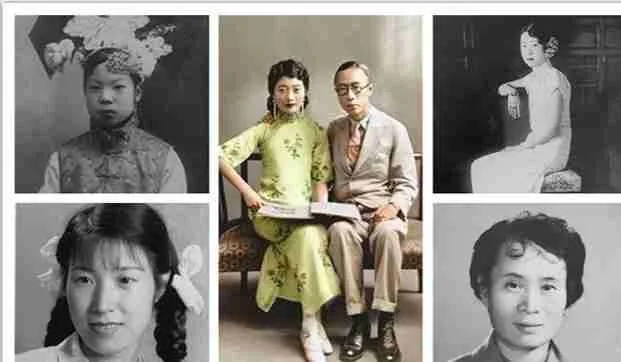
Puyi has five wives.Puyi’s first concubine was Erdet Wenxiu, second wife Wanrong, third Tan Yuling, fourth wife Li Yuqin, and fifth Li Shuxian.
Wenxiu
Wenxiu (20 December 1909 – 17 September 1953), also known as Consort Shu and Ailian , was a consort of Puyi, the last Emperor of China and final ruler of the Qing dynasty. She was from the Mongol Erdet Clan and her family was under the Bordered Yellow Banner of the Eight Banners.
Wanrong
Wanrong ( November 1906 – 20 June 1946), also known as Xuantong Empress, of the Manchu Plain White Banner Gobulo clan, was the wife and empress consort of Puyi, the Xuantong Emperor of China. She was titular Empress consort of the Qing dynasty from 1922 until abolition of the monarchy in 1924.She was also Empress consort of the Japanese puppet state of Manchukuo from 1934 until abolition of the monarchy took place in 1945. She was posthumously honoured with the title Empress Xiaokemin.
During the Soviet invasion of Manchuria at the end of the Second Sino-Japanese War in 1945, Wanrong was captured by Chinese Communist guerrillas and transferred to different locations before she was settled in a prison camp in Yanji, Jilin. She died in prison in June 1946 and her remains were never found. On 23 October 2006, Wanrong’s younger brother, Runqi, conducted a ritual burial for her in the Western Qing tombs.
Tan Yuling
Tan Yuling, Noble Consort Mingxian (born Tatara Yuling; 11 August 1920 – 14 August 1942), was a concubine of China’s last emperor Puyi. She married Puyi when the latter was the nominal emperor of the puppet state of Manchukuo during the Second Sino-Japanese War. Her given name “Yuling” is sometimes transliterated into English as “Jade Years”.
Yuling was born to the prosperous Tatara clan in Beijing. Her father Zhaoxu was a high-ranking warlord who administered the area around Beijing and Tianjin, and her mother, Lady Ok, was a high-ranking Korean courtesan from Hamhung. Yuling’s two aunts were in the Guangxu Emperor’s harem as Consort Jin and Consort Zhen. Even after the Qing Dynasty fell, the Tatara clan continued to be very prosperous, but they changed their names to Tan, to avoid being discriminated for their Manchu ethnicity.
In early 1937, when Tan was still attending a middle school in Beijing, she was chosen to be a wife of Puyi and she travelled to Manchukuo’s capital Hsinking (Changchun). On 6 April, she married Puyi in the Hsinking palace and was given the title of Imperial Concubine Xiang. She became very close to Puyi after their marriage and in time, she became Noble Consort Xiang and became the manager of the Imperial Harem, as Empress Xiaokemin was not in favour anymore. Yuling reviled the Japanese.
Tan died in 1942 while being treated for cystitis, in less than a day after her Japanese doctor gave her an injection. The circumstances surrounding her death were suspicious because Tan was said to have resented the Japanese for being controlling over Puyi. Kwantung Army staff officer Yoshioka Yasunori, who was an attaché to the Manchukuo imperial household, once urged Puyi to take a Japanese bride, but Puyi had already married Tan, so he ignored Yoshioka. Yoshioka was said to be unhappy about this. Following Tan’s death, Puyi was again pressed by Yoshioka to choose a Japanese spouse, but he refused.
Puyi granted Tan the posthumous title of Noble Consort Mingxianand held a funeral for her in Banruo Temple in Hsinking. After the fall of Manchukuo in 1945, following the Japanese surrender at the end of World War II, Puyi ordered Tan’s remains to be cremated and the ashes sent to her relatives in Beijing. Puyi kept a photograph of Tan with him until his death in 1967.
Li Yuqin
Li Yuqin (15 July 1928 – 24 April 2001), sometimes referred to as the “Last Imperial Concubine” , was the fourth wife of China’s last emperor Puyi. She married Puyi when the latter was the nominal ruler of Manchukuo, a puppet state established by the Empire of Japan during the Second Sino-Japanese War.
Li Shuxian
Li Shuxian (4 September 1924 – 9 June 1997), was the fifth and last wife of Puyi, the last emperor of the Qing dynasty in China.
She was a Han Chinese and a former hospital worker. In 1959, after ten years in prison, Puyi was pardoned. The pair were introduced to one another by a friend in 1962 and wed that same year. Premier Zhou Enlai greeted their marriage. They had no children. She accompanied Puyi to his last days.
what happened to the last emperor of China wives?
In Emperor Puyi’s eventful life spanning 61 years, he had a total of five wives:
Empress Wanrong:
Wanrong, known as one of the most beautiful women in the Qing dynasty, became Puyi’s empress. Thanks to her father’s progressive mindset, Wanrong received an education equal to that of boys from an early age. This upbringing made her knowledgeable, intelligent, and fluent in English. Wanrong’s beauty and intelligence made her renowned among the aristocracy, and the imperial family also heard of her. When Puyi announced his intention to choose a consort, Wanrong’s parents sent her to the palace to participate in the selection.
Initially, Puyi was not attracted to Wanrong, as he mentioned that the women in the photos had bodies that were like “paper tubes… and it was hard to distinguish beauty from ugliness.” Instead, he was interested in Wenxiu. However, with the intervention of Consort Jin, Wanrong, who possessed a more refined and elegant temperament, was chosen as the empress.
After entering the palace, Wanrong quickly gained Puyi’s favor due to her beauty and unique qualities. The two young individuals even exchanged love letters in English, creating a harmonious and romantic relationship. However, their relationship didn’t last long as Puyi soon shifted his attention to Wenxiu. This left Wanrong deeply disappointed and sparked jealousy and rivalry between the two consorts. The intense jealousy between Wanrong and Wenxiu caused Puyi to grow increasingly weary of both women. During their time at the Tianjin Residence, their unchecked jealousy and excessive shopping caused financial strain on Puyi, furthering his discontent with them.
Although Puyi was dissatisfied with both Wanrong and Wenxiu, his bias leaned towards Wanrong as she was his empress, while Wenxiu was a concubine. This led to Wenxiu, who had a strong personality, leaving the Tianjin Residence in a fit of anger and initiating a divorce lawsuit against Puyi. Puyi tried various means to reconcile with Wenxiu but ultimately failed to retain her, as she had already given up on their relationship.
Wanrong believed that once Wenxiu left, she and Puyi would rekindle their relationship and he would show her affection again. However, she quickly realized she was mistaken when Puyi blamed her for Wenxiu’s departure and became even more dismissive of her. This further plunged Wanrong into despair, leading her to resort to opium to numb herself. In Manchukuo, Wanrong’s life became even more difficult, and in search of solace, she had an affair with Puyi’s bodyguard.
When Wanrong became pregnant, their secret was exposed. Enraged and humiliated, Puyi ordered the bodyguard to kill Wanrong’s newborn child, and Wanrong herself was banished to the cold palace. Devastated by this blow, Wanrong’s mental health deteriorated significantly. After Japan’s defeat and the downfall of Manchukuo, Wanrong lost her support and subsequently passed away due to illness in Yanji in 1946.
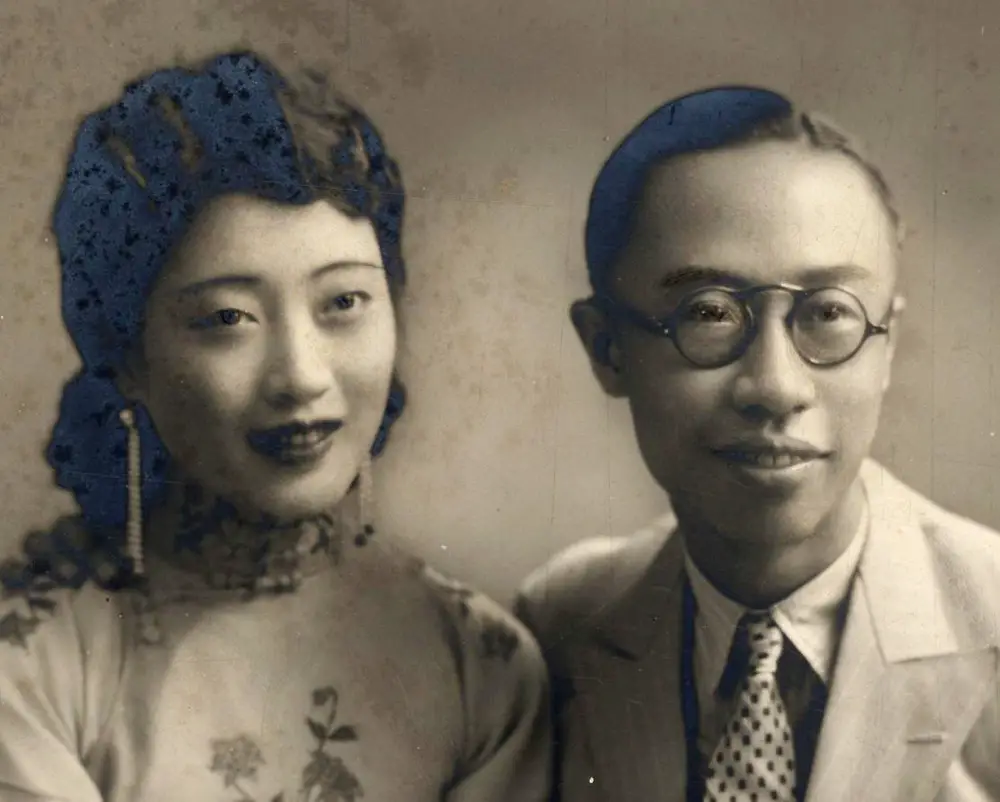
Wenxiu:
Wenxiu entered the palace together with Wanrong, who became the empress, while she was appointed as a consort. Although being a consort was a prestigious position, her fate was still entangled in the tumultuous times. As the era underwent tremendous changes, Wenxiu’s status as a consort rapidly diminished. Moreover, the rivalry and jealousy between her and Wanrong, coupled with Puyi’s bias towards Wanrong, plunged Wenxiu’s life into an abyss of suffering.
Her life lacked fortune, happiness, and sunshine. Eventually, with her strong-willed nature, she began to rebel at the Tianjin Residence. After arguments with Puyi and Wanrong, Wenxiu left Puyi and initiated a divorce lawsuit against him. Upon receiving the guarantee that she would never remarry, Puyi agreed to the divorce.
After divorcing Puyi, Wenxiu became a teacher in the countryside. In 1974, she married Liu Zhendong, a Nationalist Party (Kuomintang) junior officer. After the liberation, Liu Zhendong, due to his commendable performance, was relieved of restrictions and worked as a sanitation worker. Wenxiu passed away due to illness in 1953. Although her life after divorcing Puyi was relatively challenging, it was far happier than being with Puyi, and her fate turned out better than Wanrong’s.
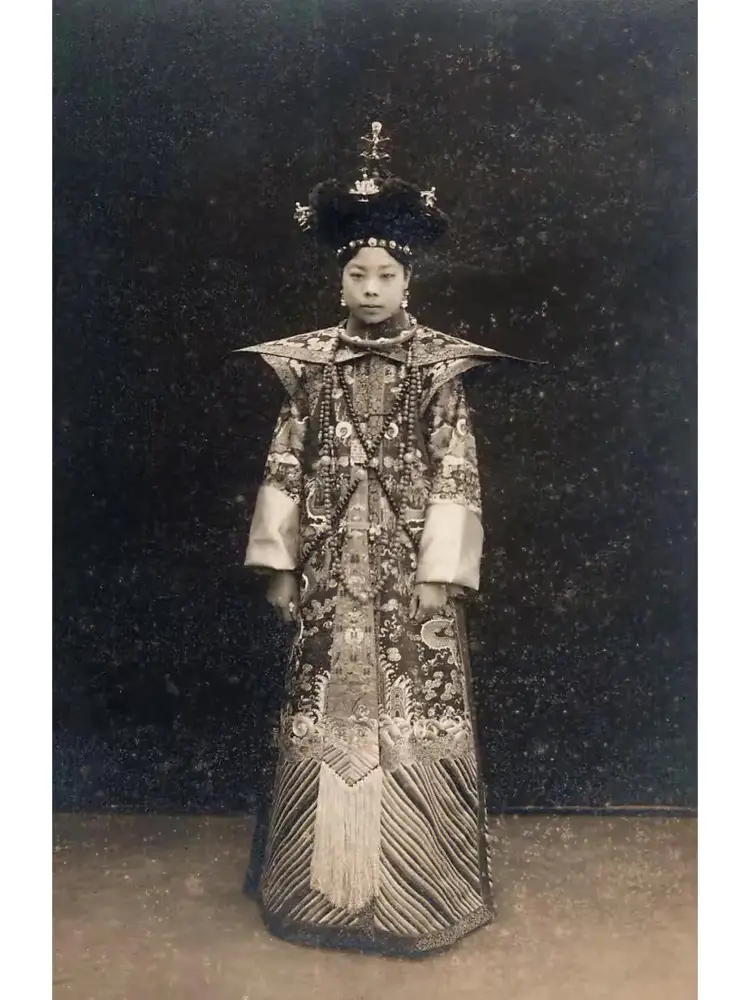
Tan Yuling:
Tan Yuling was one of the wives Puyi married during his reign as the Emperor of Manchukuo. After Wanrong made a mistake, the Japanese intended Puyi to marry a Japanese woman as his wife, but unwilling to become a puppet of the Japanese, Puyi chose Tan Yuling, who was still attending high school, as his wife. Although Tan Yuling was only 17 at the time, she was intelligent, capable, gentle, and virtuous. She handled matters with great prudence, which pleased Puyi greatly. They had a happy married life, and Puyi often arranged for female relatives from his family to accompany Tan Yuling for outings, showing great concern for her well-being.
Tan Yuling was also Puyi’s most beloved wife, and they lived together in harmony for five years. However, Tan Yuling suddenly fell ill and received treatment at the hospital. Despite undergoing treatment, her condition did not improve. The hospital sought the assistance of Japanese doctors, but Tan Yuling unexpectedly passed away during her treatment in Japan. There were many doubts surrounding Tan Yuling’s death, to the extent that Puyi suspected she was killed by the Japanese.
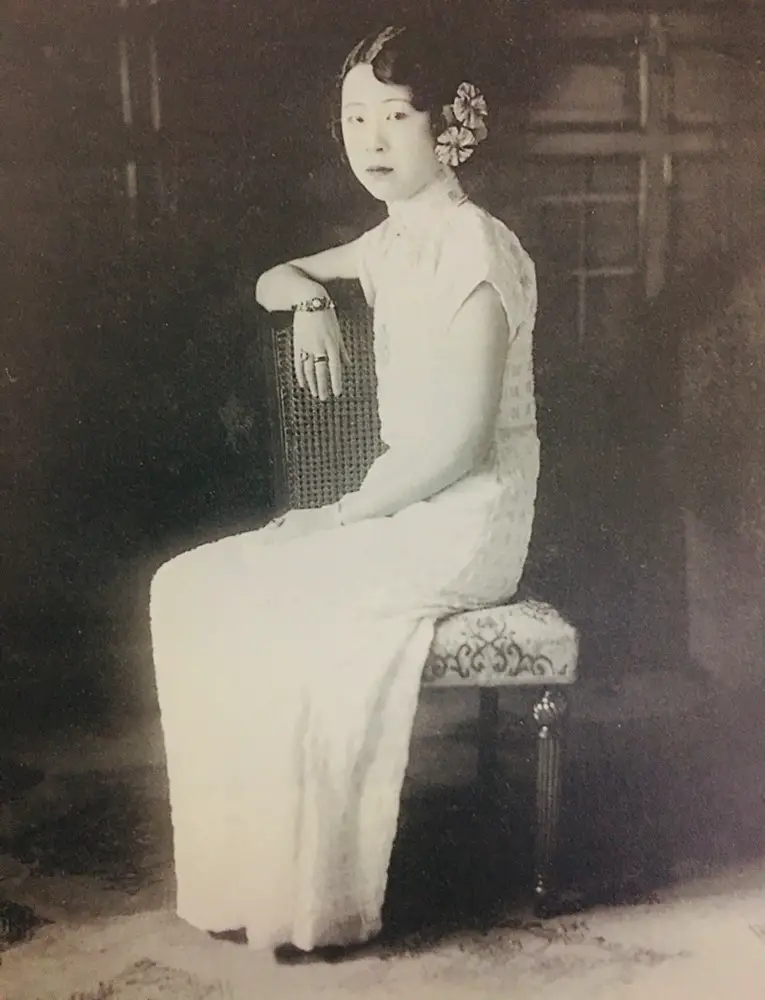
Li Yuqin:
Li Yuqin was Puyi’s fourth wife and one of his wives during his reign as the Emperor of Manchukuo. After the death of Tan Yuling, Puyi refused the request to marry a Japanese woman and instead married another Manchu girl, Li Yuqin. When Li Yuqin married Puyi, she was also in her teenage years and still studying, but she was far from fortunate like Tan Yuling. While Tan Yuling received lavish affection during her five years with Puyi, Li Yuqin faced cold treatment and was not favored by Puyi.
After the liberation, Li Yuqin and Puyi dissolved their marriage, and she married a staff member of the radio station. Li Yuqin had her own ordinary but happy family life. She later became a member of the CPPCC (Chinese People’s Political Consultative Conference) in Changchun City, achieving success in both career and family. Her subsequent life was relatively happy, and Li Yuqin passed away in 2001 at the age of 73.
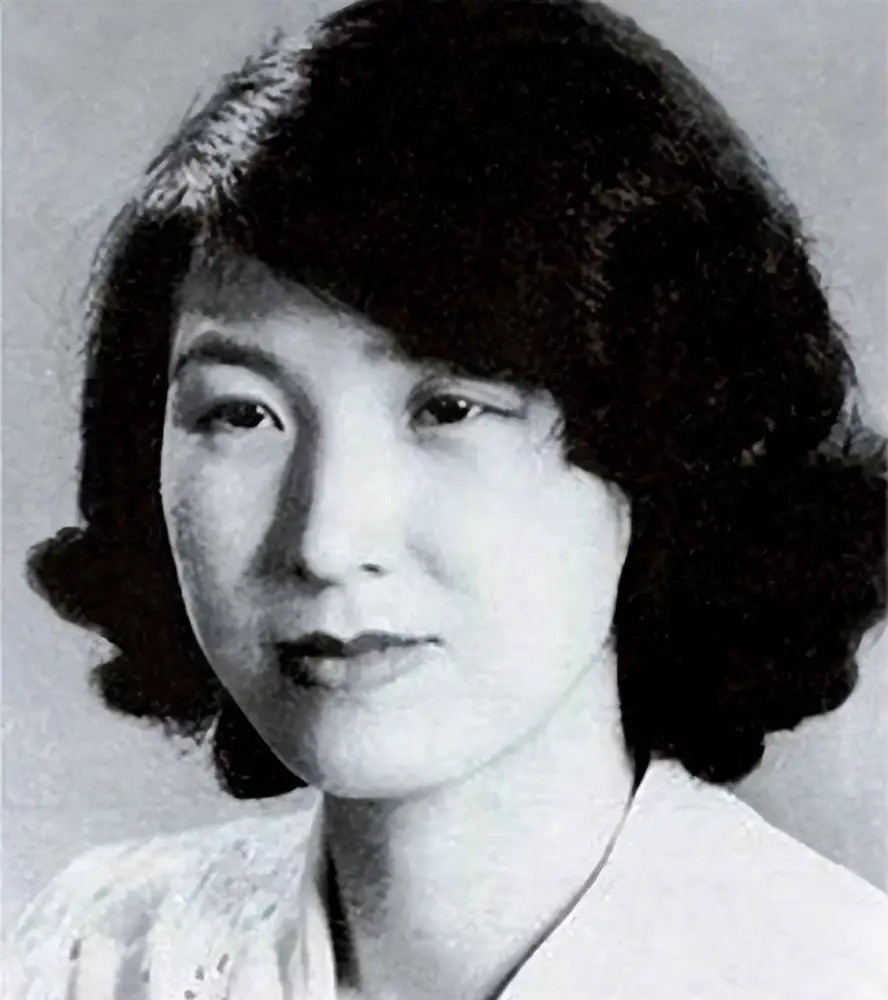
Li Shuxian:
Li Shuxian was Puyi’s final wife. After the founding of the People’s Republic of China, Puyi received amnesty and worked at a botanical research institute. At that time, a Manchu princess named Wan Yanlitong (Wang Mintong) pursued him, but Puyi did not want any ties with his past life. Instead, he chose Li Shuxian, who worked as a nurse, as his wife.
Soon after their marriage, Puyi’s flaws became evident. Due to being pampered and served since childhood, Puyi had poor self-care and life skills, causing great distress to Li Shuxian. She wanted to divorce Puyi but eventually gave up the idea of divorcing him due to Puyi’s earnest pleas.
Not long after their marriage, Puyi passed away due to illness. In Li Shuxian’s later years, she received care and support from the government, and her outcome was favorable.
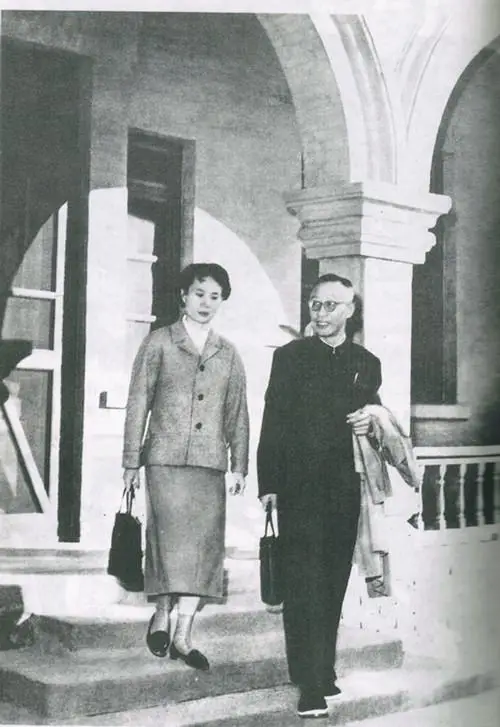
did puyi have children?
Puyi, the last Emperor of the Qing Dynasty, did not have any descendants. The basis for this is a diagnostic document from the early 1960s in which the patient, Puyi, underwent an examination on July 21, 1962. The document states that Puyi had suffered from impotence since his reign as Emperor thirty years prior and had been seeking treatment, but with limited success. Despite being married multiple times, Puyi’s wives did not bear any children.
why did puyi leave the forbidden city?
In 1912, Puyi served as Emperor for less than three years before being compelled to issue an abdication edict. At that time, Puyi may not have fully understood the implications of this decision. Even the abdication edict was signed with the assistance of Empress Dowager Longyu. Puyi was still a child and seemed unaware of the significant changes that awaited him in the future.
Fortunately, despite his abdication, the Republican government and the Qing court reached an agreement that allowed Puyi and his family to continue residing in the Forbidden City, leading their own lives within their own miniature court. The condition was that Puyi and his family were not allowed to engage with the outside world or attempt to regain the throne.
Initially, this arrangement appeared favorable for Puyi, as he continued to enjoy a life of privilege and luxury. Additionally, figures such as Yuan Shikai and Li Yuanhong treated Puyi with respect. Thus, Puyi and his entourage lived a comfortable existence during this time.
However, later on, there were individuals who sought to exploit Puyi for restoration purposes, with Zhang Xun being a notable example. Zhang Xun aimed to use Puyi to achieve the restoration of monarchy, and Puyi, unaware of the concept of restoration, simply agreed upon hearing that he could resume his role as Emperor. However, this attempted restoration turned into a farcical event, lasting only 12 days before failing.
The restoration incident ultimately challenged the principles outlined in the agreement between the Republican government and the Qing court. However, the Republican government was preoccupied with other matters and did not have the time to address this situation. Puyi and his family continued their lives in the Forbidden City, largely unaffected by the failed restoration. This created a misconception for Puyi, leading him to believe that restoration could be achieved without significant consequences.
The Republican government could turn a blind eye to the restoration of Puyi, but Feng Yuxiang had a different perspective. In 1924, Feng Yuxiang stormed into the Forbidden City and directly demanded that Puyi and others leave the premises. He warned that measures would be taken if they refused to leave. It was at this point that Puyi’s tragic life officially began.
Feng Yuxiang gave Puyi very little time, and he had to leave the Forbidden City in a hurry, without being able to take many belongings. When Puyi returned to the Forbidden City later, he had to buy a ticket, which was an interesting turn of events but also evoked a sense of profound sighs. After all, the course of history often renders an individual’s fate insignificant compared to its larger context.
Shortly after being expelled from the Forbidden City by Feng Yuxiang, Puyi, driven by his desire to continue being an emperor, fell into the trap set by the Japanese and became manipulated by them. This became an indelible stain on his life. It was precisely because of this that Puyi would be imprisoned for many years, perhaps until the moment he finally saw the light of day again. It was only then that Puyi could be considered to have truly grown up.
why was puyi imprisoned?
Puyi, also known as Henry Pu Yi, was the last Emperor of China and the twelfth and final ruler of the Qing dynasty. After the fall of the Qing dynasty in 1912, Puyi was forced to abdicate the throne at a young age.
In 1931, Puyi was chosen by the Imperial Japanese Army to be the ruler of the puppet state of Manchukuo in northeastern China. He served as a puppet emperor under the control of the Japanese, who had occupied Manchuria and established the state for their own strategic and economic interests.
After World War II, Japan’s defeat led to the dissolution of Manchukuo and the end of Puyi’s reign. He was captured by Soviet forces in 1945 and handed over to the Chinese Communist Party. Puyi was imprisoned by the Chinese government, initially facing accusations of war crimes and collaboration with the Japanese.
During his imprisonment, Puyi underwent political reeducation and was eventually released in 1959. He renounced his imperial titles and privileges and later worked as a gardener and librarian. Puyi’s life story gained international attention with the 1987 release of the film “The Last Emperor,” which depicted his early life, time as Emperor, and subsequent imprisonment.
why was puyi captured by the soviet union?
Puyi, the last Emperor of China, was captured by the Soviet Union at the end of World War II for several reasons:
Manchuria’s strategic importance: Manchuria, the region where Puyi’s puppet state of Manchukuo was established, held significant strategic value due to its natural resources, industrial capabilities, and proximity to the Soviet Union. The Soviet Union sought to secure its interests in the region and prevent further Japanese aggression.
Soviet-Japanese conflicts: The Soviet Union and Japan were engaged in intermittent conflicts during World War II, particularly along their shared border in Manchuria. In August 1945, the Soviet Union launched a major offensive against the Japanese in Manchuria, known as the Manchurian Strategic Offensive Operation. As part of this offensive, Soviet forces captured Puyi in order to dismantle the Japanese-controlled puppet state.
Gathering intelligence: Puyi’s capture also presented an opportunity for the Soviet Union to gather valuable intelligence on the Japanese and their activities in Manchuria. Puyi had been a figurehead ruler under Japanese control, and his knowledge of the region and its administration could provide valuable insights to the Soviet Union.
Political leverage: By capturing Puyi, the Soviet Union could exert political influence over China. The Chinese Communist Party, led by Mao Zedong, was gaining strength, and the Soviet Union sought to align itself with the Communists. Holding Puyi as a captive allowed the Soviet Union to potentially use him as a bargaining chip in future negotiations with the Chinese government.
After his capture, Puyi was handed over to the Chinese Communist Party, who subsequently imprisoned him.
how old was the last emperor of China when he died?
Puyi, the last Emperor of China, died on October 17, 1967, at the age of 61. He was born on February 7, 1906. Puyi’s life spanned a period of significant political and social changes in China, from his ascension to the throne as a child to his later years as a common citizen.
Where was the last emperor of China buried?
Puyi, who was China’s last emperor died in the October of 1967. He was only 61 at the time and succumbed to kidney cancer. Immediately after he died, his ashes were placed in a cheap wooden basket, but 13 years later, he was recognized as a revolutionary hero and given a resting spot among all the other revolutionary martyrs in Babaoshan Cemetery. After another 15 years of societal reform, he was moved to the Western Qing tombs.
how did the last emperor of China die?
In 1967, Puyi fell ill with uremia. Upon hearing the news, Premier Zhou Enlai personally instructed the staff of the Chinese People’s Political Consultative Conference (CPPCC) to ensure that Puyi’s illness was treated. He instructed that Puyi be arranged to receive a consultation from both Chinese and Western doctors at the Capital Hospital. When Puyi’s condition became critical, Premier Zhou appointed the renowned traditional Chinese medicine practitioner, Pu Fuzhou, to treat him and conveyed Zhou’s greetings to him.
However, despite medical efforts, the treatment proved ineffective, and Puyi passed away on October 17, 1967. His ashes were placed in the Babaoshan Revolutionary Cemetery. Thirteen years after Puyi’s death, on May 29, 1980, the Chinese government held a memorial service for him. On January 26, 1995, Puyi’s ashes were interred in the Royal Cemetery of Hualong, located near the Chongling (Tomb of Emperor Guangxu) within the Qing Western Mausoleums in Yi County, Hebei Province. The Hualong Royal Cemetery is a privately operated commercial cemetery located just 200 meters from the rear wall of the Chongling.
Puyi had expressed his desire to be buried in the Qing Western Mausoleums during his lifetime. His burial in this cemetery was carefully arranged by his fifth wife, Li Shuxian, and personally overseen by her. Li Shuxian also hoped to be buried alongside Puyi after her own passing. However, due to various objective reasons, their wish for a joint burial has not been realized. On June 9, 1997, Li Shuxian passed away.
puyi religion
Puyi, the youngest Emperor to ascend the throne in the Qing Dynasty, became Emperor at the age of three. The political affairs were jointly managed by Empress Dowager Longyu and Regent Prince Chun. However, their misguided actions led to the squandering of the remaining wealth of the Qing Dynasty by burying it in the underground palace of Empress Dowager Cixi. They also employed incompetent Manchu nobles to strip Han Chinese generals of their military power and exploited the lower-class population while conducting study tours of foreign military and political systems.
In the third year of the Xuantong era (1911 AD), the Wuchang Uprising erupted while Puyi was studying at the Yuqing Palace. Months later, Puyi affixed his seal and acknowledged the proclamation of his own era name, “Xuantong,” in a document known as the “Abdication Edict of the Qing Emperor.” From then on, Puyi continued to reside in the Forbidden City but received foreign diplomats with the protocol accorded to other foreign monarchs.
Old Qing loyalists hoped to restore the monarchy with the support of foreign powers and encouraged Puyi to interact with foreign ambassadors and missionaries. A tutor named Johnston taught Puyi language and etiquette, also spreading Christianity. Initially, Puyi disdainfully referred to his pocket watch and necktie as “various odds and ends,” but after getting acquainted, he changed his attitude and said, “Johnston has become an integral part of my soul,” gradually accepting Catholicism.
In the twenty-first year of the Republic of China (1932 AD), with Japanese support, Puyi established the “Manchukuo” puppet state. In order to demonstrate the independent sovereignty of “Manchukuo,” Japan demanded that Puyi revive his faith in Shamanism. The bedroom of the Manchukuo Imperial Palace in Changchun housed a shrine that combined elements of Shamanism and Tibetan Buddhism, accompanying Puyi for 13 years.
Puyi had been a devout follower of Buddhism since childhood, even to the point of obsession. Whether going out or participating in important events, Puyi would consult the divination sticks to determine auspicious or inauspicious outcomes. Sometimes, he would spend one to two hours for a single divination. In short, he would not give up until a favorable divination was obtained. In the later period of “Manchukuo,” as Japan’s military situation worsened, Puyi felt a bleak future and became more spiritually despondent. Apart from eating and sleeping, he would meditate, recite scriptures, and consult divination sticks. The palace seemed like a temple, with the continuous sound of wooden fish and bells. However, despite his Buddhist beliefs, Puyi was merciless towards his subordinates. Any slight mistake would result in him punishing or physically assaulting them. For instance, the children in the service department responsible for cleaning and doing odd jobs would work for fifteen to sixteen hours a day, and they had to stay up all night for night duty. These teenagers, who were still growing, had the hardest work but the worst food, resulting in a pale and emaciated appearance. If they made any slight mistake, they would be punished, beaten, or even put into confinement.
puyi teacher
Puyi, the last Emperor of China, had seven or eight teachers, including Lu Runxiang, Chen Baochen, Luo Zhenyu, Wang Guowei, Zhu Yifan, Liang Dingfen, and Yuan Lizhun. These individuals were either top scholars or had a background in the Hanlin Academy, and they possessed remarkable academic achievements. There was also a teacher from England named Reginald Johnston.
Lu Runxiang:
In the 13th year of the Tongzhi era, Lu Runxiang achieved the highest score in the palace examination and became the top scholar, making him the 101st top scholar in the Qing Dynasty. After the Xinhai Revolution, he remained in the Forbidden City and became the teacher of the abdicated last Emperor, Puyi. Lu Runxiang was gentle and approachable, treating people with no distinction. Despite holding high positions, he lived a simple life. He excelled in calligraphy, particularly in regular script, and was devoted to studying the calligraphy of Ouyang Xun and Yu Shinan. He incorporated the essence of both masters, blending their strengths to form his own style.
Wang Guowei:
Wang Guowei (1877-1927), with the courtesy names Boyu and Jing’an, and the pseudonyms Guantang and Yongguan, was of Han ethnicity and from Yanguan Town, Haining, Zhejiang. He was a distinguished scholar in literature, aesthetics, history, philosophy, ancient scripts, and archaeology during the late Qing Dynasty and modern China.
Luo Zhenyu:
Luo Zhenyu (1866-1940), with the courtesy names Shuyun and Shuyan, later known as Xuedang and Zhen Song Laoren in his old age, was originally from Shangyu, Zhejiang. He was a renowned scholar in modern China, with achievements in the fields of antique artifacts, archaeology, epigraphy, oracle bone studies, and agricultural science. He excelled in collecting and interpreting artifacts and authored works such as “The Essence of Inscriptions on Oracle Bones in the Yin Ruins,” “Preliminary Compilation of Inscriptions on Oracle Bones in the Yin Ruins,” “Supplement to Inscriptions on Oracle Bones in the Yin Ruins,” and “Annotations and Interpretations of Inscriptions on Oracle Bones in the Yin Ruins.” He is honored as the “pioneer of deciphering oracle bone inscriptions” and the initiator of incorporating oracle bone inscriptions into scholarly research in modern times.
Zhu Yifan:
Zhu Yifan (1861-1937), with the courtesy name Aiqing and the pseudonym Dingyuan, was the younger brother of Zhu Yijun. He was born in Lianhua, Jiangxi. During the Guangxu era, he was a Hanlin scholar and held various positions such as the main examiner in Hunan, the education supervisor in Shaanxi, and the chief minister responsible for the examination of overseas students. He served as the third president of Peking University and was a renowned calligrapher. In the birthday poem he wrote for Zhu Yifan’s 70th birthday, Puyi praised his calligraphy with the line “Your skilled hand in calligraphy soars gracefully like white birds, and your benevolent countenance warms with a rosy glow.” It is certain that he was the most outstanding calligrapher among the court calligraphers at that time.
Chen Baochen:
Chen Baochen (1848-1935), with the courtesy name Boqian, was of Han ethnicity and from Luozhou, Fujian. He was a prominent late Qing Dynasty statesman and scholar. In 1909, Chen Baochen was summoned to Beijing to serve as the chief editor of the Academy of Ritual Studies. In 1911, he became the teacher of Emperor Puyi during the Xuantong era and was granted permission to ride horses in the Forbidden City. On February 12, 1912, when the Qing emperor abdicated, Chen continued to follow Puyi and was tasked with editing the “Veritable Records of Emperor Dezong.” In October of the 13th year of the Republic of China (1924), when Puyi was expelled from the Forbidden City, he met Chen Baochen and wept, saying, “I am ashamed to face my ancestors!”
Liang Dingfen:
Liang Dingfen (1859-1919) was a late Qing Dynasty scholar and book collector from Panyu, Guangdong. He passed the imperial examination in the sixth year of the Guangxu era and was appointed as a compiler. He held various positions such as magistrate, censor, and provincial governor, and gained fame for impeaching Li Hongzhang, which made him well-known in the court. Later, he was invited by Zhang Zhidong to teach at Guangdong Guangya Academy and Jiangsu Zhongshan Academy, and he became the chief editor of the “Changyan News.” His poems and essays expressed a passionate and disillusioned view of the world, and he was considered one of the “Four Masters of Modern Lingnan” along with Luo Zhenyu and others.
Yuan Lizhun:
Yuan Lizhun (1877-1935), with the courtesy name Juesheng, the pseudonym Zhongzhou, and the alternate pseudonym Konggaohan Zhaisheng, was born in Wujin County (now part of Changzhou City), Jiangsu. He was a painter and calligrapher. In the 24th year of the Guangxu era (1898), he passed the imperial examination and became a compiler in the Hanlin Academy. He was appointed to the South Study, where he held various positions. He sympathized with Kang Youwei’s reformist ideas. In the 28th year of the Guangxu era, he served as the supervisor of the Imperial University in Beijing. In the 31st year of the Guangxu era, he was in charge of establishing the Industrial School (predecessor of the Beijing University of Engineering) and served as the supervisor. During this period, he also served as an examiner for the examination of candidates in the Jia Chen examination.
Reginald Johnston
Reginald Johnston, born in 1874 in Edinburgh, the capital of Scotland, originally named Reginald Fleming Johnston. In 1898, he was sent to Hong Kong as an Oriental apprentice. From then on, Johnston worked and lived in China for thirty-four years as a scholar and official. In February 1919, he went to Beijing and began his career as a “Tutor to the Emperor.” Johnston was the first and last foreigner to hold the title of “Tutor to the Emperor” in the history of several thousand years of Chinese emperors.
Johnston was a sinologist with profound knowledge and scholarly qualities. He extensively studied classics and literature, and had a keen interest in Chinese classical poetry and the art of tea drinking. He wrote numerous works on Chinese issues, such as “Buddhists in China,” “The Coexistence of Shishi and Dragons in Weihaiwei,” “Confucianism and Modern China,” and others. However, it was his 1934 publication, “Twilight in the Forbidden City,” that brought him great renown.
Not only did Johnston serve Pu Yi with utmost loyalty, but he also brought a new breath to the ancient imperial palace, earning deep respect from Pu Yi.
Reginald Johnston’s career as a “Tutor to the Emperor” elevated him to another level in life, entering into the realm of the imperial court, which is inaccessible to ordinary people and full of mystique. He became the only foreigner to have lived in the Forbidden City and held the title of “Tutor to the Emperor” in the history of several thousand years of Chinese emperors, thus gaining worldwide fame. The British government awarded him the knighthood of the “Order of the British Empire” in recognition of his accomplishments.
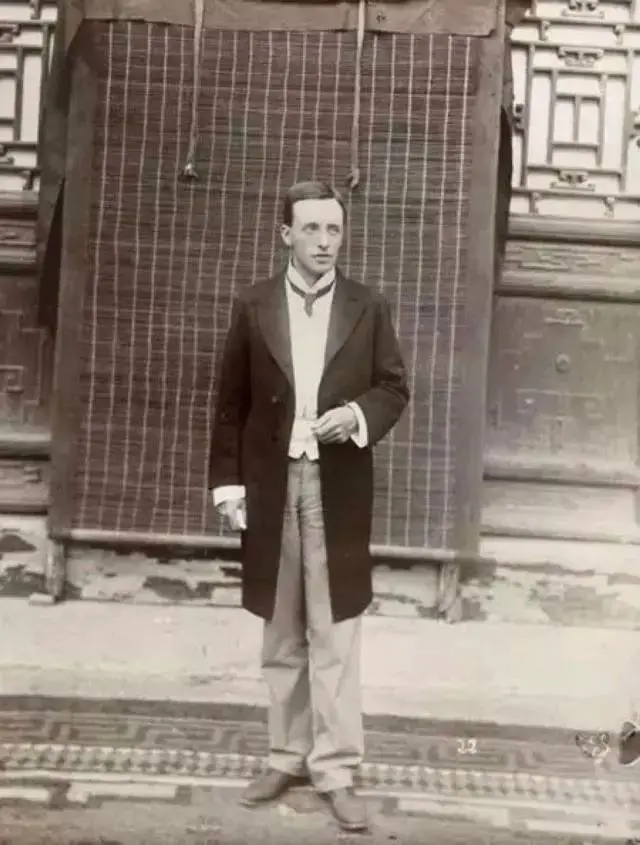
puyi father
Aixinjueluo Zai Feng (February 12, 1883 – February 3, 1951), with the courtesy name Bohan and the pen names Jingyun and Shupi in his later years, also known as Jin Jingyun [18], was the grandson of Emperor Daoguang of the Qing Dynasty and the fifth son of Prince Chun, Aisin Gioro Yixuan. He was the half-brother of Emperor Guangxu and the biological father of Emperor Puyi, the Xuantong Emperor. As a member of the imperial family of the Qing Dynasty, he served as the Regent Prince during the Xuantong period.
Zai Feng was born in the Prince Chun’s Mansion at the Taiyuan Lake in Beijing. In the 16th year of Emperor Guangxu’s reign (1890), he inherited the noble title and became the second generation Prince Chun. During the Boxer Rebellion, when the German envoy Clemens von Ketteler was killed in Beijing, Zai Feng was appointed as the Chief Minister and Special Envoy of the first rank to Germany to apologize and express remorse in the 27th year of Emperor Guangxu’s reign (1901). He refused the German Emperor Wilhelm II’s demand to kneel and bow. Later, when he attempted to travel to European countries, he was stopped and had to return to China. In the 34th year of Emperor Guangxu’s reign (1908), he became the Minister of War. In the same year, in November, his son Puyi ascended the throne, and Zai Feng was appointed as the Regent Prince. The following year, he served as the Acting Grand Marshal of the Land and Sea Forces. Thus, during the last three years of the Qing Dynasty (1909-1911), he was the de facto ruler of China. In the third year of the Xuantong period (1911), the Xinhai Revolution broke out, and he was forced to resign as the Regent Prince and retired to a private life. The next year, Puyi abdicated, and the Qing Dynasty came to an end.
In the 17th year of the Republic of China (1928), Zai Feng moved to Tianjin for a secluded life. In the 21st year of the Republic of China (1932), Puyi established the “Manchukuo” with the support of the Japanese imperialism. Zai Feng rejected the Japanese’s demand for surrender and angrily rebuked Puyi for siding with Japan. However, all the expenses of the Prince Chun’s Mansion were subsequently provided by the “Inner Court” of the pseudo-Manchukuo. After the liberation, Zai Feng donated the Prince Chun’s Mansion to the People’s Government for public use. In early 1951, due to long-term illness and exposure to cold wind, he passed away shortly after.
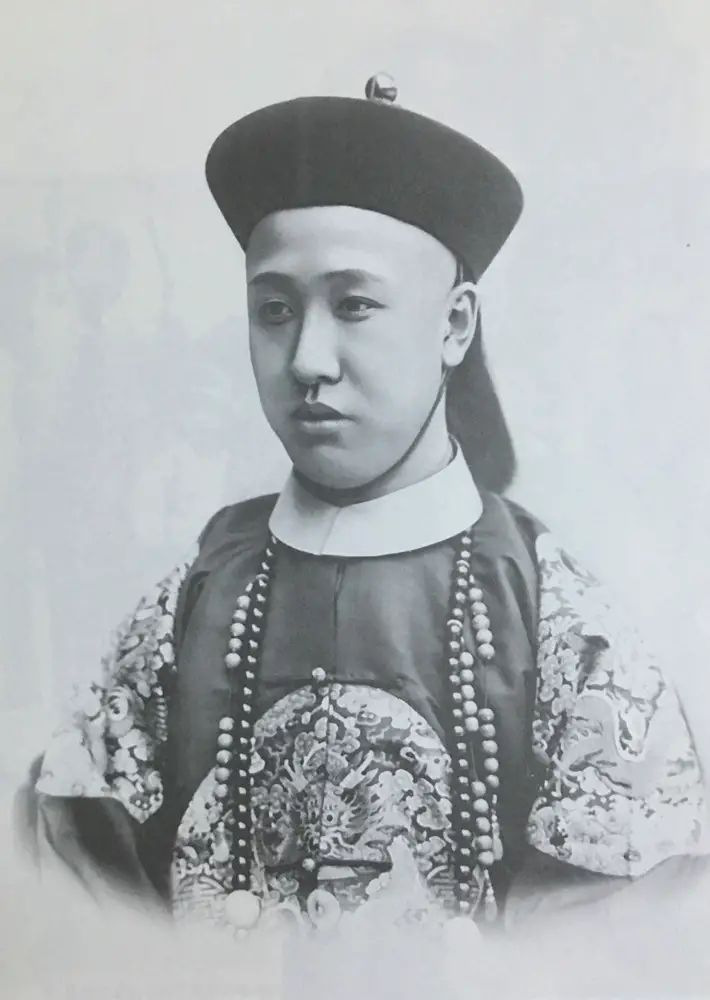
puyi mother
Su Wan’guaerjia Youlan (1884–1921) was a Manchu from the Zhengbai Banner. She was the daughter of Ronglu, the Minister of War, and the principal wife of Zai Feng. She was the birth mother of Puyi, the Xuantong Emperor. Due to various circumstances, she was separated from Puyi at a young age and had very few opportunities to see him. In 1921, a fierce conflict erupted between Puyi and Consort Jin, and Youlan was summoned to the palace by Consort Jin and reprimanded. Upon returning home, she tragically committed suicide by ingesting opium at the age of only 37.
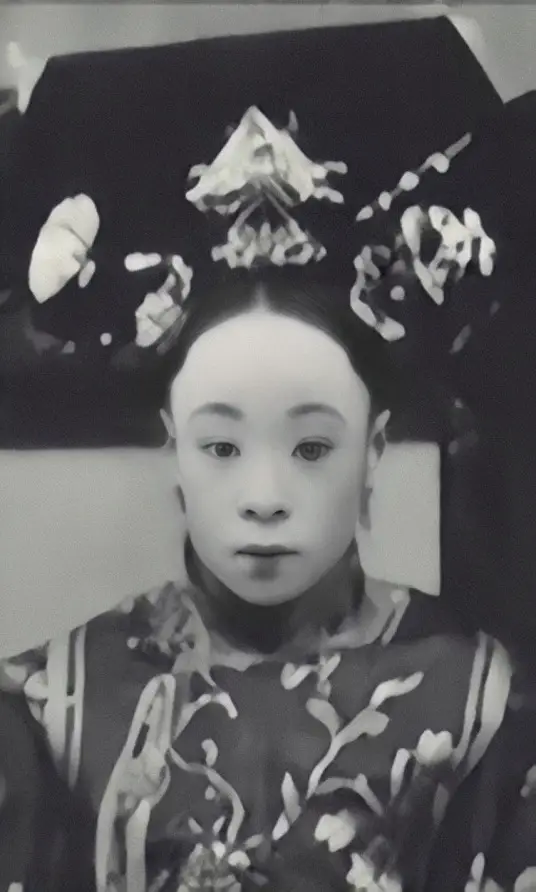
puyi brother
Pujie
Puyi’s brother, Pujie, was born in 1907 and passed away in 1994. He was known by his courtesy name, Junzhi, and belonged to the Manchu ethnic group. Pujie was the younger brother of Puyi, the last Emperor of the Qing Dynasty. Their father was Prince Chun, the second prince of the First Rank, and their mother was Guwalgiya Ronglu, the daughter of Ronglu, a high-ranking official in the imperial court.
During his childhood, Pujie studied alongside Puyi in the residence of Prince Chun. In 1929, he went to study in Japan and in 1937, he entered into a “friendly marriage” with a member of the Japanese imperial family, Princess Hiro Saga (later known as Aisin-Gioro Hiro). Despite the initially pragmatic nature of their marriage, the couple developed a loving relationship and had two daughters. In August 1945, after the end of World War II, Pujie was captured by Soviet forces at Shenyang Airport.
In August 1950, Pujie was handed over to the government of the People’s Republic of China and placed under house arrest. In 1959, during the 10th anniversary of the National Day of the People’s Republic of China, a general amnesty was granted, and Puyi, as the last Emperor, received a pardon, but Pujie did not. However, in the second batch of pardons in 1960, Pujie was also granted amnesty. He worked at the Jing Shan Park for a year and held positions such as commissioner of the Chinese People’s Political Consultative Conference’s Research Committee on Historical and Literary Materials, member of the Standing Committee of the National People’s Congress, and deputy director of the National People’s Congress Nationalities Committee.
Pujie passed away on February 28, 1994, in Beijing, at the age of 87, due to illness. His ashes were divided, with half buried at the Aisin-Gioro branch of Nakayama Shrine in Shimonoseki, Yamaguchi Prefecture, Japan (the shrine of the Saga family), and the other half buried in Beijing.
Pujie, as a figure of the early 20th century, carried significant historical transitions. His enduring and affectionate relationship with Hiro Saga is admired by many. Pujie was also a renowned calligrapher, who excelled in poetry and classical Chinese literature. His calligraphy works are highly treasured both in China and overseas. He summarized his calligraphy experience with the phrase, “Strength and vigor in the wrist, meticulous practice on paper. A sincere heart naturally creates a rich brush style. The form is not constrained, but freely embodies elegance.” Due to his unique background and genuine emotions, his poetry also possesses distinctive characteristics. A collection of his poems and verses titled “Selected Poems of Pujie” has been passed down through generations.
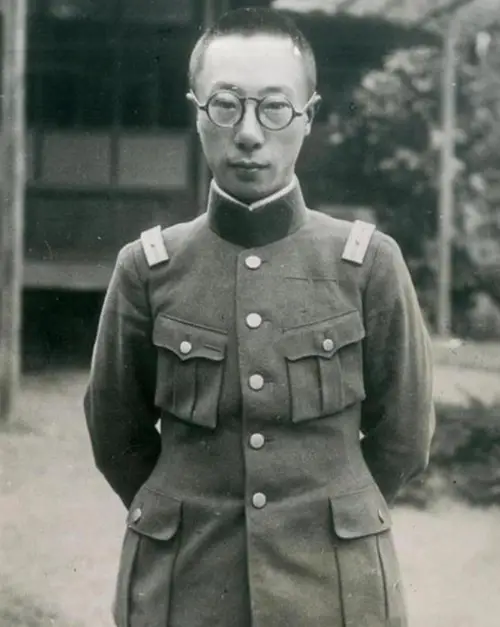
Puren
Puyi’s younger brother, Aisin-Gioro Puren (also known as Jinyouzhi), was born in September 1918 in the Prince Chun Mansion on the northern shore of Shichahai in Beijing. In 1947, he founded the Beijing Jingye Elementary School and served as its principal until his retirement in 1968. After retiring, he devoted himself to the study of Qing Dynasty history and published works such as “The Life and Education of Qing Dynasty Princes,” “Nalan Xingde and ‘Tongzhi Hall Collection,'” “Prejudices in Diet and Medical Treatment in the Late Qing Dynasty,” and “Memories of the Prince Chun Mansion,” among others. He also edited his father Zaitao’s diary, “The Diary of Traveling to Germany.”
Puren served as a member of the 7th, 8th, and 9th Beijing Municipal Political Consultative Conference (CPPCC). Following his retirement, he continued his cultural research and historical reminiscences. However, on April 10, 2015, at three o’clock in the afternoon, Puren passed away at the age of 97.
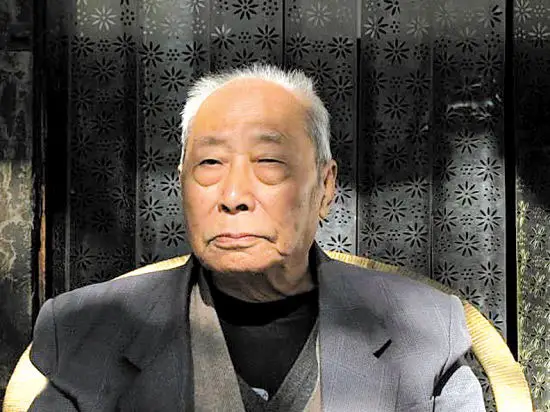
puyi sister
Eldest Sister Yunying
Yunying, the eldest sister of Puyi, was born on August 9, 1908. However, until the age of eleven, Puyi had little recollection of his sister. Shortly after Yunying’s birth, Puyi ascended to the throne as the Emperor, and he remained confined within the Forbidden City. It wasn’t until he turned eleven and the empress dowagers allowed for “family meetings” that Puyi finally met his younger brother Pujie and his eldest sister Yunying.
Among Puyi’s seven sisters, except for the sixth and seventh, their marriages were arranged by Puyi himself. Yunying, as the eldest daughter, naturally took the lead. Yunying was married off to Guoluoluo Runliang, the brother of Wanrong. According to the recollections of Yunying’s younger sister Yunying, this eldest sister’s marriage was not a happy one. Runliang had a lavish lifestyle and even indulged in opium. Yunying endured a difficult life, but as a princess of the royal household, divorce was not an option. Even if she returned to her parents’ home for a short stay, she would be sent back to her husband’s residence after a few days.
Perhaps due to long-term suppression, Yunying later developed appendicitis. At that time, Western medicine was already available, but the Guoluoluo family ignorantly believed it to be a hoax. Yunying suffered in pain and eventually died at the age of seventeen.
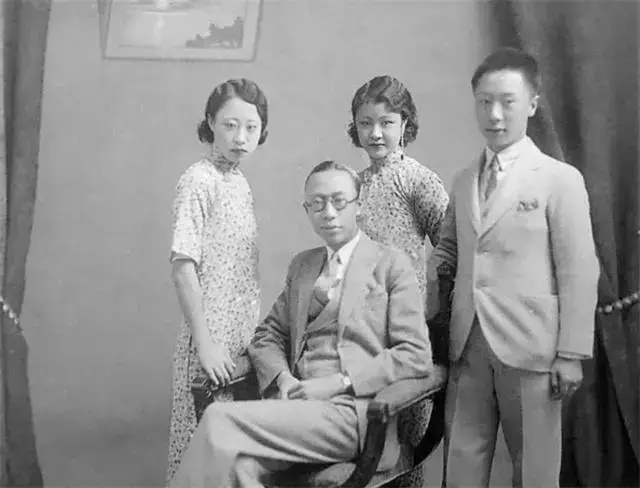
Second Sister Yunhe
Yunhe was born in 1911. Although the Qing Dynasty had been overthrown, Puyi, the abdicated emperor, continued to reside in the imperial palace. Therefore, Yunhe’s childhood and youth were still filled with a life of privilege. According to her own recollections, there were many strict rules and regulations within the palace that tightly restrained them. They were not allowed to speak loudly, smile with their teeth showing, chew with their mouths open while eating, or run while walking. Yunhe had to be cautious at all times, as a single misstep could lead to trouble.
Once, her grandmother took her to pay respects to Zhaohetai Fei. The empress dowager asked her, “What is your favorite fruit?” She replied, “I love pears.” Suddenly, the empress dowager’s expression changed, and her grandmother hurriedly led her away. It turned out that the empress dowager was superstitious, as the word for “pear” sounds similar to “leave,” which is considered unlucky. When they returned to the palace, everyone scolded Yunhe, saying, “Why didn’t you say apples or bananas?”
Later, their family’s fortunes declined, and they faced increasing hardships. They had to sell things to make a living but still maintained a facade of affluence and grandeur. Yunhe wanted to find work outside, but it was not allowed. In 1932, with Puyi’s approval, she was arranged to marry Zheng Guangyuan, the grandson of Zheng Xiaoxu, who had served as the Prime Minister of the puppet state of Manchukuo.
Although it was a political marriage, the marital life of Yunhe and Zheng Guangyuan was quite happy. They had one son and three daughters. After the establishment of the People’s Republic of China, Zheng Guangyuan worked as an engineer in the Construction Department of the Beijing Post Office. He passed away in 1995. Yunhe, on the other hand, became the head of a kindergarten. Due to difficulties in writing her name and lack of recognition, she changed her name to “Jin Xinru.” She retired in 1973 and passed away in 2001 at the age of 91, being the longest-lived among the seven sisters.
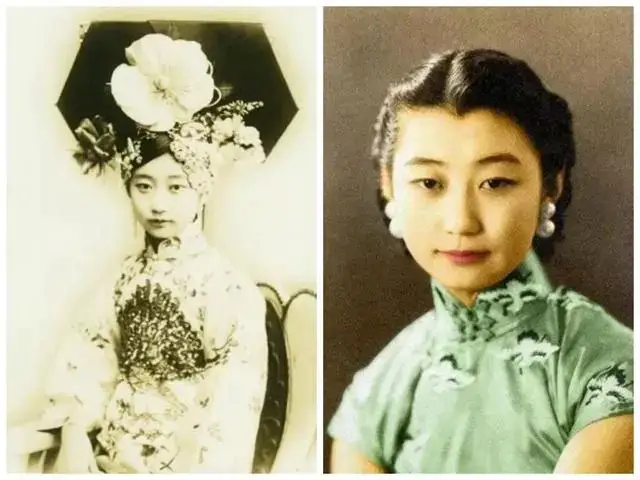
Third sister, Yunying
The marriage between Puyi and Wanrong’s maternal family had already been accomplished by Yunying. However, Yunying had a strained relationship with her husband Runliang and passed away early in 1925. In order to continue consolidating the political alliance between the two families, Puyi had no choice but to marry another sister into Wanrong’s maternal family.
Yunying married Wanrong’s older brother Runliang, while Yunying married Wanrong’s younger brother Runqi. However, Yunying and Runqi can be considered childhood sweethearts, so although they were also sacrifices in the political realm, their married life was not too bad.
In 1931, Puying sent Pujie and Runqi to Japan to study, and Yunying accompanied them. She returned to China in 1933 and remained in Manchukuo, the puppet state. Later, Runqi and Puyi were captured and taken to the Soviet Union, while Yunying managed to escape the ordeal. She passed away in 1992.
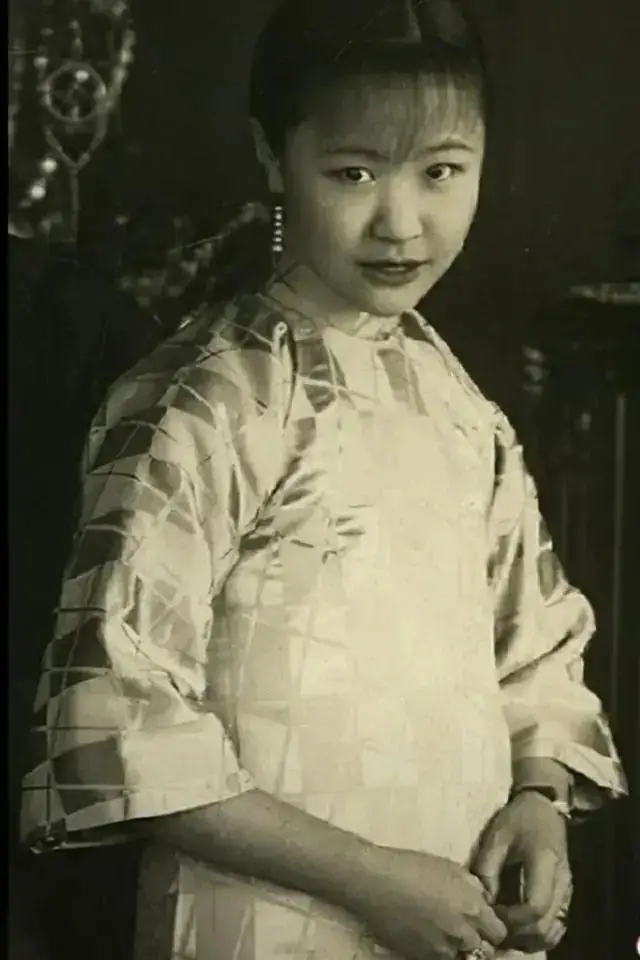
Fourth Sister Yunxian
Yunxian was born in 1914. Her birth mother was a maid to Zaifeng. Due to her lowly status, she received less love from her parents compared to her siblings. Because of this, Pu Yi, her elder brother and the puppet emperor, also disliked her due to her background.
Pu Yi, in his attempt to break free from being controlled by the Japanese, planned to marry Yunxian off to Seibu Jingtai, the son of Ling Sheng, who served as the Governor of Xing’an North Province in the puppet state of Manchukuo. Ling Sheng was a powerful Mongolian noble. After forming a marital alliance with Pu Yi, he remained loyal to him, but this made the Japanese suspicious of him, considering him to be dishonest.
Later, the Japanese, seeing that Pu Yi was not easily manipulated and fearing that Ling Sheng might stage a coup, executed Ling Sheng as a means to intimidate Pu Yi. Pu Yi was indeed frightened, and the engagement between Yunxian and Ling Sheng’s son was called off. Subsequently, Pu Yi arranged for Yunxian to marry Zhao Qifan, a former classmate. Zhao Qifan had been working for the Japanese, and after Japan’s surrender, he disappeared.
After the establishment of the People’s Republic of China, Yunxian, who was impoverished, received assistance from the government. Not only did she have housing, but she also obtained a job at a library. She passed away in 2003 at the age of 89.
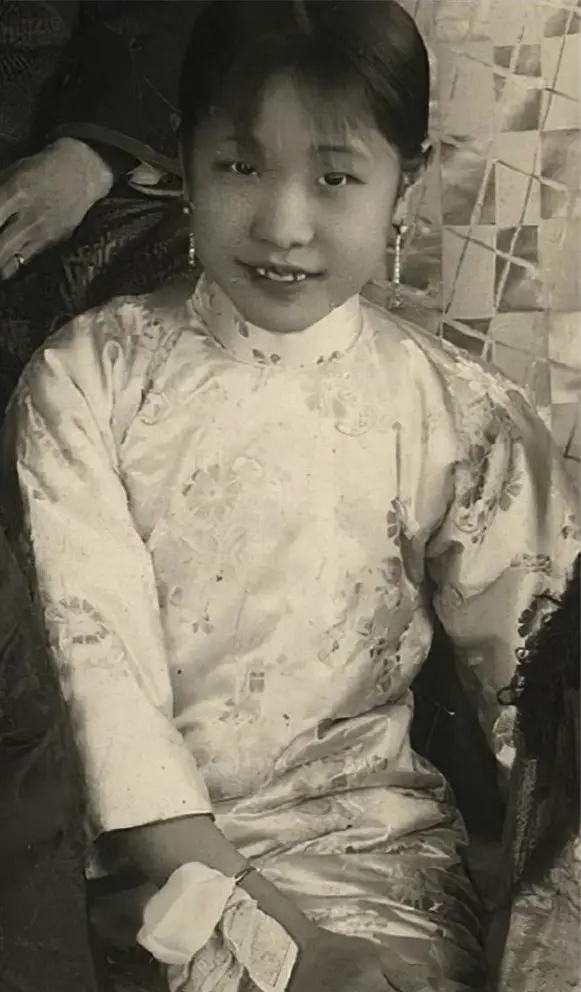
Fifth Sister Yunxin
Yunxin was born in 1917 and was the fifth daughter of Zaifeng. Her husband was Wan Shengshi, the adopted son of Qing Dynasty minister Wan Jiashi. Wan Shengshi had studied in Japan and returned to China to serve as Pu Yi’s bodyguard. Yunxin and Wan Shengshi had one son and three daughters.
After the collapse of the Manchukuo, Wan Shengshi was captured by the Soviet army, and Yunxin and her children became displaced in Northeast China. After the founding of the People’s Republic of China, Yunxin worked various jobs such as a waitress and cashier, becoming an ordinary laborer. Wan Shengshi, after his release from prison, worked at a translation company in Beijing and passed away due to illness in 1972.
Following the establishment of the People’s Republic of China, Yunxin continued to work as a translator and also held positions as a cashier and hotel receptionist. She passed away in 1998 at the age of 81.
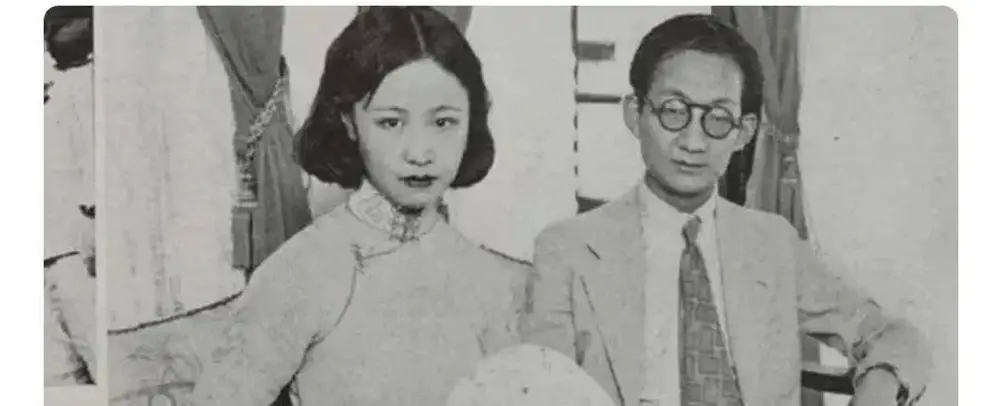
Sister Six, Yunyu
Yunyu was born in 1919 and was the most talented among the seven sisters. From a young age, Yunyu had the opportunity to copy famous paintings from the Song and Yuan dynasties. She developed her own style based on traditional techniques. In 1945, Yunyu married Wan Yanailan, who was also a renowned painter and the 27th generation descendant of Emperor Jin Shizong of the Jin Dynasty.
Yunyu’s life was different from her five sisters. Her husband was not involved with Puyi, and they had a loving relationship. After the founding of the People’s Republic of China, Yunyu, with her painting skills, became a well-known artist both in China and abroad. Her works were exhibited internationally several times. She passed away in 1982 at the age of 63, having lived a relatively smooth life.
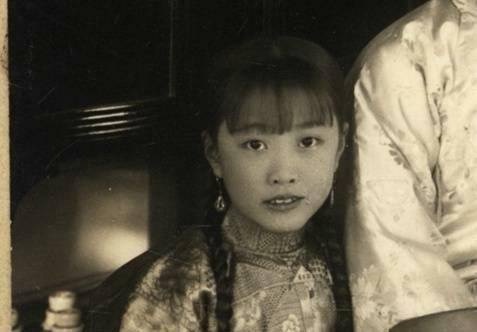
Sister Seven, Yunhuan
This young princess was born almost ten years after the fall of the Qing Dynasty, which meant that she wasn’t influenced by any old ideologies. By chance, she received a Western education and became deeply involved in the field of education from the 1940s onwards. Alongside her friends, Yunhuan co-founded a school and dedicated her life to providing advanced education to more children. She remained committed to this cause for decades.
In 2004, at the age of 83, Yunhuan passed away due to illness. Before her death, she said, “It has been my greatest honor to serve the people throughout my life.” Her pure-hearted dedication touched many.
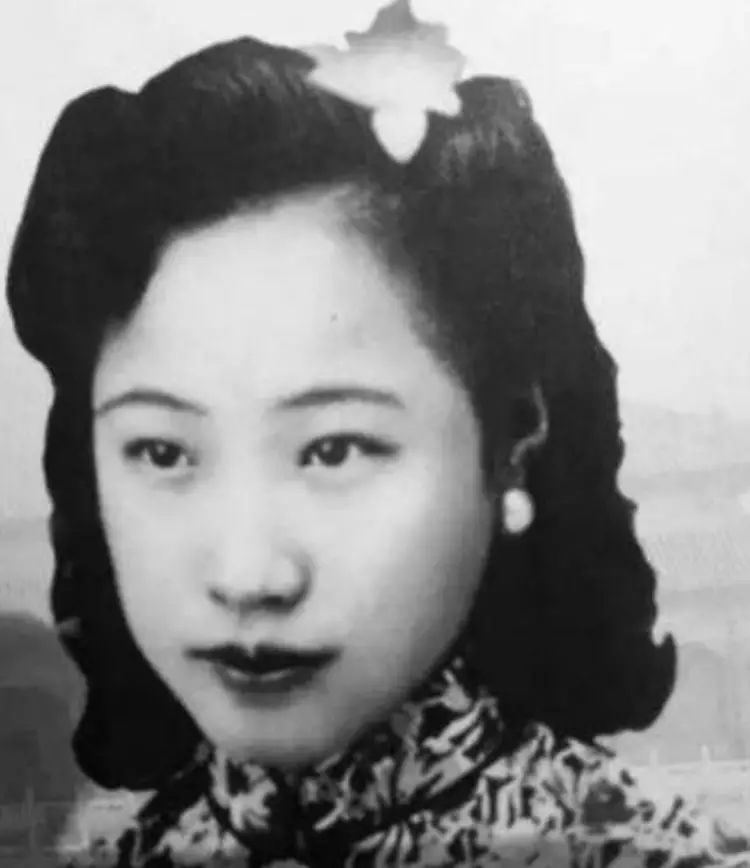
Conclusion
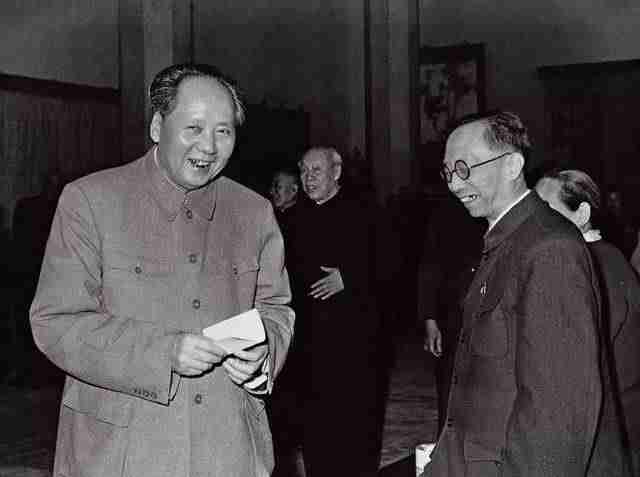
Puyi, started as an emperor when he was about two to three years old. His regime was quite adventurous and had multiple events going on at the time. At one point, he was overthrown by the Nationalists of China, then he became a puppet rule with Japan’s support. Also, he was incarcerated as a war criminal by Russia, and from an emperor, he ended up as a gardener. Even so, he had a revolutionary send-off through the royal mourning hall and the driving of his remains in a Japanese limousine.